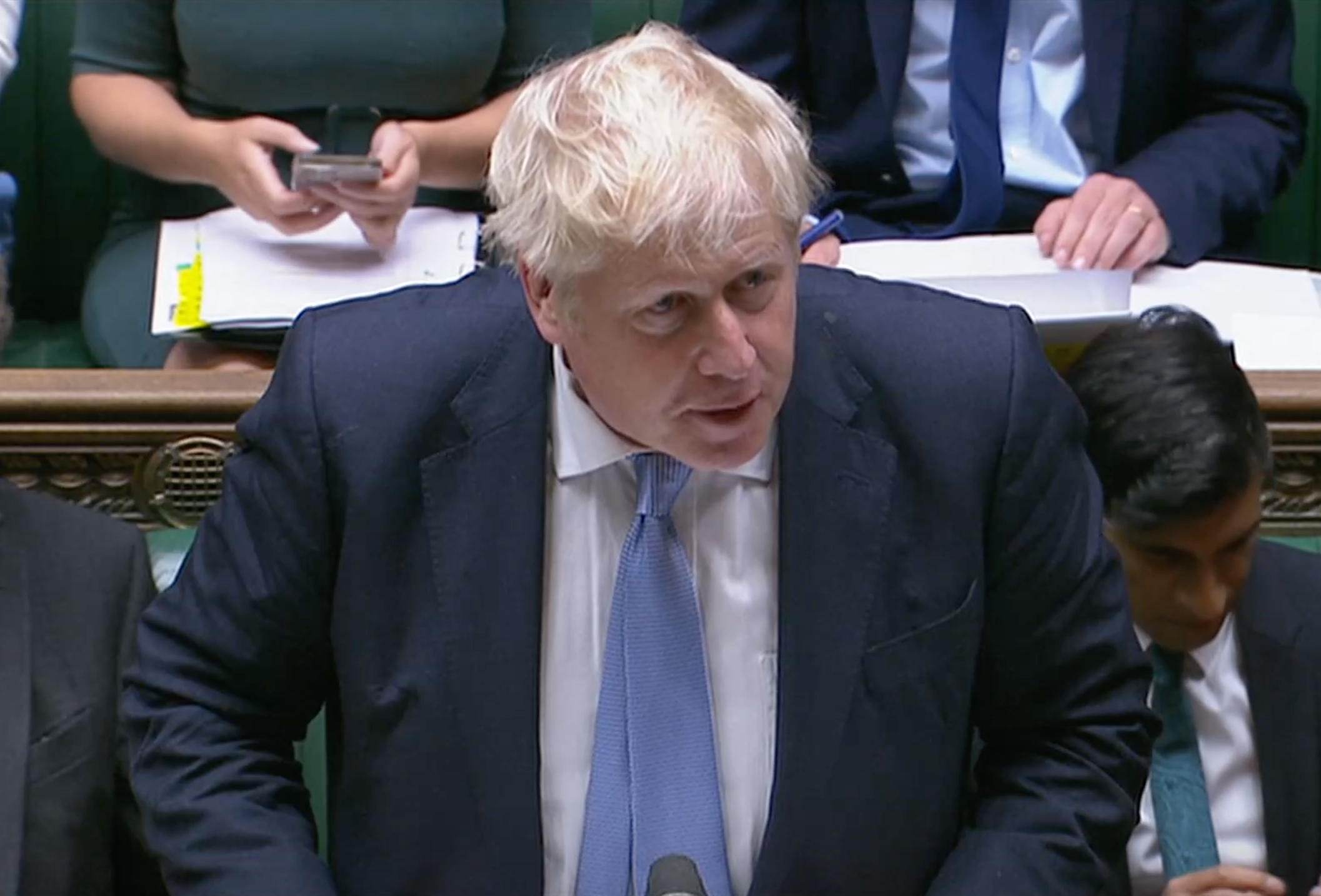Boris Johnson had the upper hand in the Commons today – but he may be the loser tomorrow
There will be the inevitable disappointments when it turns out that the social care problems have not been solved when the new arrangements finally start, writes John Rentoul


One New Labour era minister said to me: “Keir, as ever, has walked straight into the trap like a lamb to the slaughter.” If so, the lamb looked pretty cheerful about it at Prime Minister’s Questions today. It was a boisterous exchange, fully charged not just with a full post-Covid House of Commons, but with a return to real politics, as both sides vigorously contested the centre ground.
Boris Johnson certainly had the upper hand today, but Keir Starmer might have successfully defended enough of his ground to be able to turn the tide of battle later. The Labour leader started by demanding that the prime minister repeat his assurance that no one needing care will need to sell their home to pay for it.
Johnson couldn’t do that, and must be wondering why he ever said anything so foolish, so he resorted to the simple device of demanding to know whether Labour MPs would be voting for or against the rise in national insurance later in the day. “We at least have a plan,” he said.
With his streetfighting political instinct, Johnson had identified Starmer’s weak point. Starmer insisted that “my plan is to ensure that those with the broadest shoulders pay their fair share”, but he hasn’t set out his alternative and it doesn’t look as if he is going to.
That meant most of the exchanges were of the old-fashioned Punch and Judy variety, which always go down noisily in a full chamber. Johnson had found a plan set out by Liz Kendall, the shadow cabinet minister responsible for social care, in 2018, which she said was to be the country’s “Beveridge moment”, and which was based on national insurance. Starmer responded with an old quotation from the MP for Henley, as Johnson was between 2001 and 2008, describing national insurance as “regressive”.
The prime minister and leader of the opposition traded rhetoric. Johnson said that the opposition’s slogan, on the grounds that it wouldn’t vote for a tax rise for the NHS, was: “Vote Labour, Wait Longer.” Starmer pointed out that Johnson had failed to guarantee that the NHS backlog would be cleared, and so Tory MPs would be voting to put up an “unfair tax on working people … for this?”
And they both ended with traditional devices. Starmer cited Rosie, a single mother working on the minimum wage in a care home, who was facing a “double whammy” of a cut in universal credit followed by an increase in national insurance contributions, from the “same old Tory party putting rich mates and donors before working people”.
Johnson responded by saying that, “if we’d listened to Captain Hindsight in July we’d still be locked down now”.
But beneath the knockabout it was possible to discern the shape of the titanic political struggle over the next two or three years. The Blairite minister to whom I spoke this morning compared Johnson’s strategic sense of politics to Blair’s: “It was a real coup yesterday.” Johnson had worked out where public opinion lay on the NHS and realised that his party wouldn’t be able to stop him laying claim to Labour territory.
For the moment, Johnson is master of all that he surveys. Starmer cannot pin down the ideological shapeshifter who has used the advantage of power to set the tempo, proposing a tax rise with little warning and pushing it through parliament before MPs have had time to work out what the problems with it might be.
Nor can Starmer compete with Johnson on the show-off qualities of the populist extrovert, although he did better today to look as if he were patronising the prime minister with an air of relaxed and indulgent contempt.
But the doubts will creep in. The instant opinion polls on the tax rise are not so favourable to the prime minister that he can rely on voters welcoming the chance to pay higher taxes themselves in April next year, rather than assuming that someone else will pay.
Starmer’s questions today laid the ground for the criticisms of tomorrow, when the NHS backlog proves difficult to clear – at least Blair tried to match more funding with reform, whereas Johnson seems to be simply throwing money at the problem. Then there will be the inevitable disappointments when it turns out that the social care problems have not been solved when the new arrangements finally start in October 2023. People will still have to sell their homes to pay for care, and yesterday’s promise that no one will have to spend more than £86,000 in their lifetime turns out not to include the “hotel costs” – board and lodging – in a care home.
Johnson had the upper hand today, but Starmer may have the advantage when the hubbub of a noisy Prime Minister’s Questions has died down.
Join our commenting forum
Join thought-provoking conversations, follow other Independent readers and see their replies
Comments
Bookmark popover
Removed from bookmarks